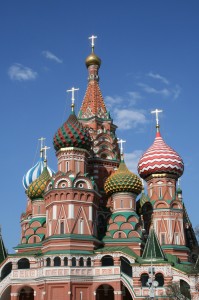There’s a quadrillion reasons why the U.S., Europe and NATO should stop poking Russia and the Russian Bear.
 Bullion.Directory precious metals analysis 24 December, 2014
Bullion.Directory precious metals analysis 24 December, 2014
By Terry Kinder
Investor, Technical Analyst
In Russia Under Attack: Letter from CEO of Genoil to CEO of JPMorgan Chase on US Foreign Policy Blowback, Mike “Mish” Shedlock, points out some of the reasons, including possibly setting off the implosion of over a quadrillion dollars in derivatives, why it would be prudent for the U.S. and its allies to stop poking the Russian Bear. (I highly recommend you read the entire post by Shedlock here.)

Russia: How far will Russia go if it feels its very existence is threatened? Image: pixabay
Shedlock highlights three sources of information in his article:
1. Wrecking Russia’s Economy Could be a Disaster for the West by The Guardian;
2. Viewing Russia From the Inside by George Friedman of Stratfor;
3. Russia Under Attack an email by David Lifschultz, CEO of Genoil.
I won’t specifically discuss Friedman’s commentary on Russia. However, in his excellent book The Next 100 Years: A Forecast for the 21st Century, Friedman outlined (if memory serves) how the U.S. has worked to encircle Russia and China. The U.S. no longer fights “wars” in order to achieve victory, but instead engages in blocking actions to keep rivals out of regions considered strategic. If you haven’t read the book it’s several years old now, but still well worth the read.
After the Cold War with Russia, instead of attempting to integrate them more fully with the West and forge lasting institutional ties, the U.S., Europe and NATO reneged on promises not to expand NATO further west. This expansion and encirclement of Russia has continued to the point where the U.S. was instrumental in overthrowing Ukraine’s pro-Russian government and replacing it with one more favorable to the U.S., Europe and NATO. It was at that point that Russia came face to face with an existential threat to its security and viability as an independent nation. The United States has been fortunate to be geographically fairly isolated. Russia has not been so fortunate and remembers very much attacks by Napoleon, Hitler, and efforts to overthrow their govenment by outsiders after the Russian Revolution.
Don’t misunderstand, I’m not pro or anti-Russia. I would point to the contrasting situation of the United States and its borders versus Russia and its borders. The United States with the Pacific on one side, the Atlantic on another, Canada to the north, and Mexico to the south is relatively secure. If you look at a map of Russia and its neighbors you will quickly gather why they might not feel equally secure. Here’s a thought experiment: Imagine if Russia came to an agreement with Canada that allowed them to station troops on the U.S. / Canada border. Imagine further that China reached an agreement with Mexico to station troops on the U.S. / Mexico border. What do you think the reaction of the United States would be? Would the U.S. feel threatened. Further consider that Sevastopol, on the Crimean Peninsula, is Russia’s only warm water port and is considered vital to the security of Russia.
In addition to all of the above, the United States and Europe have pressed ahead with a series of sanctions against Russia. With NATO countries pressed right up to its front door, a hostile government installed in Ukraine with United States help, and the continued ratcheting up of rhetoric, it’s perhaps more understandable that Vladimir Putin’s stance on the Ukraine has hardened. Putin allowing the Ukraine to be absorbed into the Eurozone and become a NATO member represents surrender externally and political suicide internally within Russia. All of which brings us back around to the quadrillion reasons why continuing to back Russia into a corner over Ukraine, and pressing ahead with additional sanctions is a really bad idea.
If Russia moves to currency controls, the concomitant step would be to declare a moratorium on the payment of interest and principle on external debt. This in itself would deliver a massive shock to the western financial institutions holding the over 600 billion in debt. It must be remembered when this happened in 1998 during the Russian financial crisis, the financial weapon of mass destruction of Long Term Capital Management imploded with 1.3 trillion in derivative exposure. The quadrillion of derivatives according to Warren Buffett contain numerous financial weapons of mass destruction that can implode the entire western financial system. Stratfor does not want to talk about it but that is what is boiling under the surface. The west has raised the ante and risked their entire financial system in this crisis.
It is true that if Russia pulled the plug on the EU by stopping their natural gas and oil exports, it would have an adverse effect on Russia. But it would have a calamitous effect on the EU. It would trigger implosions in the quadrillion of derivatives. And Russian need only do this for three to six months to achieve the desired victorious counterattack as in war laying the west low as they are doing to them, and there is no doubt that this is war.
Economic war precedes military conflict as we saw when the United States, Britain and the Netherlands cut off 92% of the oil used by Japan through an embargo on July 25, 1941, which was a declaration of war on Japan as the west is declaring war on Russia. Anyone who does not realize this is acting like an Ostrich with his head in the sand. The west is hoping against hope that if they keep raising the ante when they have no cards, that Russia will throw their cards on the table. This will not happen. They also hope that they will be able to lower the temperature any time they want to avoid all out economic and or military conflict, but history shows that once the Pandora’s box is opened it is nearly impossible to put the evils back in the box.
Normally, I’m skeptical of the idea of a derivatives based crash, not because it isn’t possible, but because I think that governments, along with central banks, will find some way to resolve a crash rather than allow the entire world economic system to collapse. In the case of Russia, however, I do find the possibility more concerning because it is difficult to gauge what lengths Russia, if pressed, will go to in order to protect itself from what it perceives to be an existential threat to its very existence. Personally, I think Russia will burn itself to the ground, along with the rest of the world, before surrendering. By surrendering, I mean Russia allowing the completion of their encirclement by allowing Ukraine to become aligned with Europe, NATO and the United States. Russia simply can’t, and therefore won’t allow that to happen. It would be a relatively small concession, for the U.S. to step back from the brink and reach some agreement with Russia that Ukraine should be a neutral, non-aligned nation. Realistically, there is so much interconnected economic activity between Ukraine and Russia that separating the two completely is impractical if not impossible.
Europe with Russia as a next door neighbor, quite logically resolved after the Cold War not to allow Russia to threaten them again. However, by excluding rather than including Russia, they now face a situation of equal, if not greater danger than faced in the Cold War. The shoe is now on the other foot and Europe has pressed right up to Russia’s front door. Surely the fall of the Berlin Wall is not such a distant memory that Europeans can’t remember the relief of not having to live in the shadow of an unfriendly giant. Now Russia stands in the shadow of an alliance that represents a similar threat to its very existence, as the USSR represented to Europe only a few short years ago. No one should doubt that Russia, if pushed too far will not hesitate to use whatever means necessary, including triggering a derivatives implosion.
Europe and the United States have more than a quadrillion good reasons to back away from escalating economic war with Russia. They must stop before economic war morphs into a shooting war.
Bullion.Directory or anyone involved with Bullion.Directory will not accept any liability for loss or damage as a result of reliance on the information including data, quotes, charts and buy/sell signals contained within this website. Please be fully informed regarding the risks and costs associated with trading in precious metals. Bullion.Directory advises you to always consult with a qualified and registered specialist advisor before investing in precious metals.












 Material provided on the Bullion.Directory website is strictly for informational purposes only. The content is developed from sources believed to be providing accurate information. No information on this website is intended as investment, tax or legal advice and must not be relied upon as such. Please consult legal or tax professionals for specific information regarding your individual situation. Precious metals carry risk and investors requiring advice should always consult a properly qualified advisor. Bullion.Directory, it's staff or affiliates do not accept any liability for loss, damages, or loss of profit resulting from readers investment decisions.
Material provided on the Bullion.Directory website is strictly for informational purposes only. The content is developed from sources believed to be providing accurate information. No information on this website is intended as investment, tax or legal advice and must not be relied upon as such. Please consult legal or tax professionals for specific information regarding your individual situation. Precious metals carry risk and investors requiring advice should always consult a properly qualified advisor. Bullion.Directory, it's staff or affiliates do not accept any liability for loss, damages, or loss of profit resulting from readers investment decisions.
